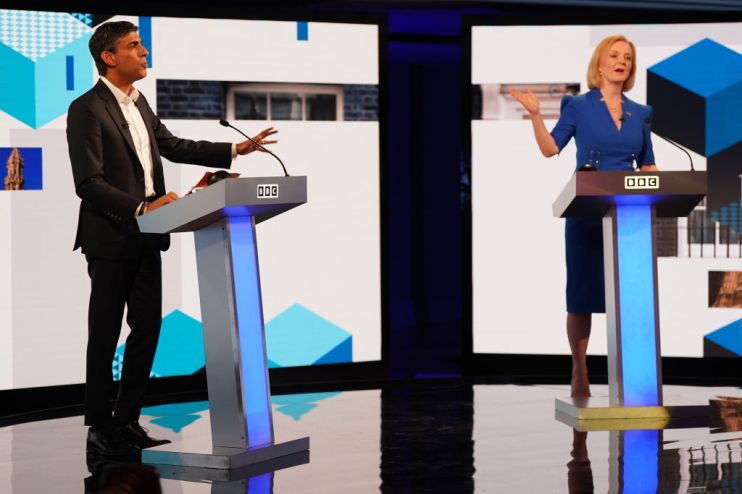Truss and Sunak must put future food affordability before farmers’ votes

As the Tory leadership race drags on, promises and policies of all kinds have been thrown at us, served with a side of U-turns reminiscent of the very same Johnson government both contenders used to be a part of. While Sunak had a change of heart on VAT and energy bills last week, Truss embarrassed herself on civil service pay.
In one crunch area – food – people are feeling the squeeze now. It’s a complicated problem stretching the breadth of the price of food to our physical health and waistlines to our environmental impact. Sunak has made clear – in a direct blow to Truss, who’s the brain behind several post-Brexit trade deals – that if crowned he’ll implement anti-import policies. “On my watch, we won’t rush through trade deals at the expense of farmers”, he said. In a bid to charm farmers, he’s also proposed a ban on selling farming property for homes and rewilding.
Truss has chipped in promising to allow more migrant food pickers. Sunak’s team branded this an example of her “true Remainer colours”. Following in Boris Johnson’s footsteps, Truss has insisted on the “opportunities to unleash British potential” granted by our exit from the EU. She will allow extensive use of drones in farming – to control the crops or spread pesticides from above – and support gene editing.
The UK is not self-sufficient in food. We import around 48 per cent of the total food consumed – a number which is rising. So the prices in our supermarkets rely heavily on supply chains susceptible to economic shocks. The war in Ukraine and the global food crisis has shown us how vulnerable we are but making food closer to home is not necessarily the answer to making it cheaper or more environmentally friendly. In some cases, importing from New Zealand can be more environmentally friendly than locally-sourced lamb from Wales.
Farming is a huge part of food policy, but the other side of the coin is what happens after the crops are pulled from the ground: how we shop and how we eat as a nation. Around 63 per cent of adults in England are either overweight or obese, and obesity-related illnesses cost more than £6.5bn a year to a financially strained NHS. What does Truss have to say about it? “People don’t want government telling them what to eat”, she proclaimed, in a perfect exercise of small state Conservatism.
Sure, but they do want the government to make sure they can afford to eat. So she has aimed to scrap the ban on “buy one, get one free offers” and to block any new levies on products high in fat, sugar or salt. Yet it was the same government she was part of who admitted, two years ago, that these offers end up increasing the amount consumers spend by almost 20 per cent. On top of that, these offers apply mainly to snacks like chocolate bars and crisps. Any future prime minister would be better off focusing on policies that drive down the price of essential nutrients like carbs or vegetables, rather than vindicating unhealthy foods to look like they’re doing something.
Sunak, meanwhile, has said little other than assuring us he won’t tell us to eat less meat.
In the TalkTV debate, the former chancellor was faced with a voter asking if she should go vegetarian, not because of the climate, but because she couldn’t afford meat. He couldn’t answer.
This question of affordability of food is going to continue to plague us until our food policy is intertwined with climate security and adaptability. Last month, we had the driest July on record and with little more rain on the way, we could be headed for a drought.
Under Johnson, we were presented with a mish-mash of policies on food, slapping calorie counts on menus and introducing the ban on “buy one, get one free” deals Truss is trying to scrap. But this is short-term stuff. We should be looking at plans to embrace alternative methods of farming, different kinds of produce for a changed climate. Yes, this may even mean different sorts of proteins, encouraged not through interventionist strategies of telling people what to eat, but by working with businesses who have an interest in safeguarding their long-term bottom lines.
We’ve reached a stage in the campaign where policies get floated and punctured all in a twelve hour news cycle. With both Sunak and Truss, it’s hard to say what they believe in and what is a desperate appeal to what they think Tory members want to hear. At the moment, it all sounds like a regurgitated tale to please farming communities rather than reckoning with the long-term threats we face.